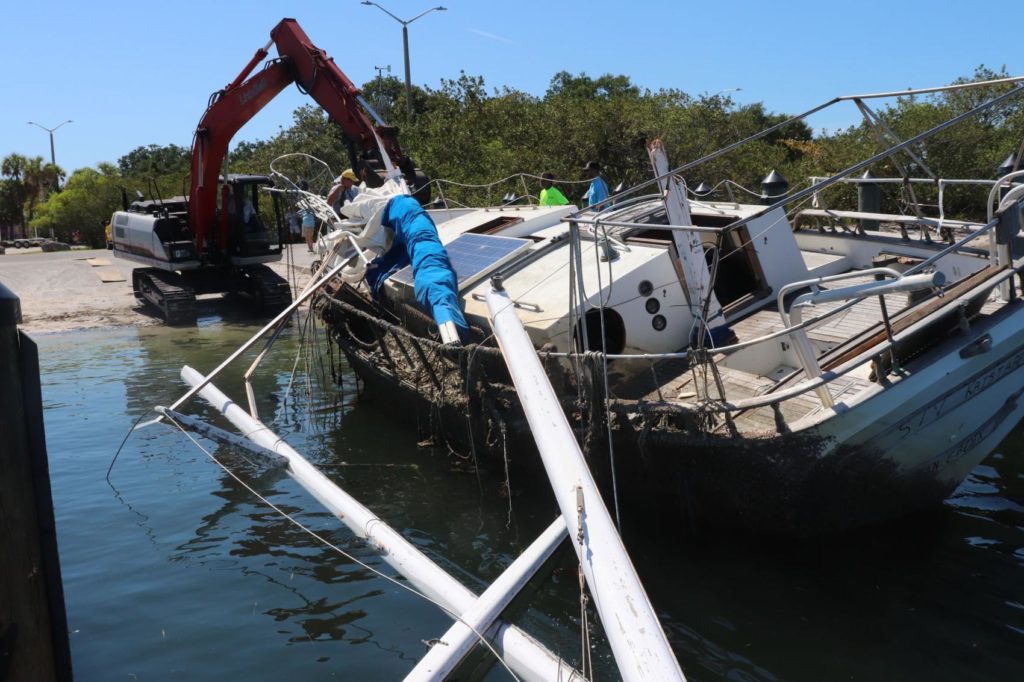By Elaine Allen-Emrich.
A new Florida law could make it easier for local governments and law enforcement to remove derelict boats from waters in their jurisdictions.
Derelict boats are an environmental hazard and safety concern, state and local officials have said. After three years of confusion since rules for removing derelict boat changed, Florida Gov. Ron DeSantis signed a new law (SB 1666), which changes the time frame for boat removal, studies the impact on the environment specifically where these boats are left behind, and adds a source for continuous grant funding for derelict boat removal. The new law goes into effect July 1.
The Sun spoke to Phil Horning, Derelict Vessel Program administrator for Florida Fish and Wildlife Conservation Commission, Division of Law Enforcement, Boating and Waterways Section, who helped change the law.
The new law is intended to save taxpayers money, eliminate navigation hazards and reduce the potential for environmental damage caused by leaking fuel, oil or even sewage from the vessel’s waste tank. The law prohibits a person who leaves or abandons a derelict vessel from residing or dwelling on the vessel until it is permanently removed from state waters or returned to waters in a non-derelict condition.
What is FWC’s part in this new law? “The new law requires the Florida Fish and Wildlife Conservation Commission, FWC, to study the impacts to local communities of boats stored long-term on Florida waters outside of public mooring fields.
“Long-term storage is defined as a boat not under the supervision or control of a person capable of maintaining, operating, or moving it from one place to another and which has remained anchored or moored outside of a public mooring field for at least 30 days out of a 60-day period. Live-aboards and transient boats aren’t mentioned in the law.
The FWC study investigates and determines how long-term stored vessels contribute to the number of derelict or abandoned vessels on state waters. Long-term stored or unattended boats affect public safety, may become hazards to navigation, can impact the environment, and contribute to the cost of vessel cleanup, especially after a hurricane.”
READ MORE at yoursun.com

